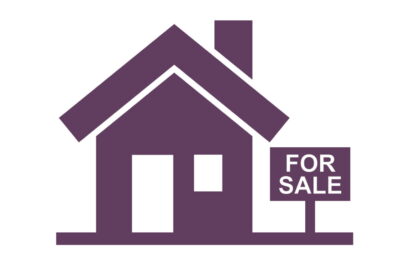RICS’ Residential Survey for April indicates a modestly positive trend in new buyer demand remaining in place, alongside a generally stable picture for agreed sales.
The latest report says this, combined with a flat trend in fresh listings and still low stock levels, means that house prices continue to be pushed higher across all parts of the UK.
At the aggregate level, a net balance of +10% of survey participants reported an increase in new buyer enquiries during April, similar to a balance of +9% returned previously. As such, this marks the eighth successive month in which a positive reading has been returned for the survey’s measure of buyer interest, albeit the profile of demand growth has been relatively modest throughout much of this stretch.
With respect to agreed sales, RICS says the latest net balance of -2% is indicative of a more or less steady picture during April, following a slight pick-up in sales over each of the previous two months. Looking ahead, near-term sales expectations remain modestly positive, as a net balance of +12% of respondents anticipate a rise in transaction volumes in the coming three months. At the 12-month time horizon, sales expectations have now eased in four consecutive reports, with the latest net balance of -4% signalling a generally flat trend is expected over the year ahead as a whole.
During April, new instructions to sell were largely stagnant, evidenced by a net balance reading of -1% being posted. This indicator saw its first positive reading in 12 months in the previous iteration of the survey, but the latest feedback suggests this upward trend was not sustained for long. Consequently, average stock levels on estate agents’ book remain very low by historical standards. Meanwhile, the number of appraisals undertaken over the month was reported to have seen little change compared with the same period 12 months ago, which does not seem to bode especially well for the flow of supply coming onto second hand market going forward, IRCS said.
Given the still tight supply backdrop coupled with modest growth in demand, house prices continue to
be driven higher across the country. Indeed, a headline net balance of +80% of respondents cited an increase in house prices in the April survey returns, up from a figure of +74% beforehand. As a result, there is little evidence of an easing in the recent strong pace of house price growth coming through at this point in time. When disaggregated, all parts of the UK continue to see a firm rate of house price inflation, with Northern Ireland and Wales both seeing particularly sharp rates of price growth according to respondents.
Richard Rowntree, managing director, mortgages at Paragon Bank, added: “Respondents to RICS’ latest Residential Market Survey noted a slight decrease in new instructions to sell, with the level of properties available to purchase still significantly lower than that needed to meet demand.
“The current increasing interest rate environment has inevitably made mortgage borrowing more expensive to finance properties that have sharply risen in value over the past year. When combined with inflationary pressure on household finances, the ability of first-time buyers to save for deposits may be negatively impacted. This could mean that people need to remain in privately rented housing for longer, prolonging the high tenant demand that we have seen over the past 18 months.
“With supply failing to meet demand and landlords also facing increased costs to manage their lettings business, rents are likely to continue to rise. This adds to the squeeze on personal finances, further hindering the opportunity for significant numbers of the population to live in a home of their choice.
“To interrupt this cycle and meet this demand, it is important that investment in the private rented sector is facilitated. The mortgage industry has a key part to play, but this must be alongside government policy that doesn’t deter private investment in the UK’s second largest housing tenure.”
